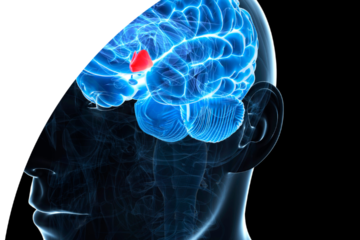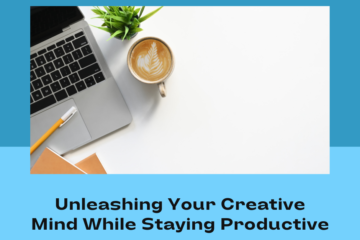
Introduction:
Our way of thinking is one of the most important parts of who we are and how we grow as people. It is what drives how we see the world, how we deal with problems, and how we grow as people. This blog post looks at the interesting link between growth mindset and personality growth. It focuses on how positive thinking, self-belief, and self-awareness can change your life.
Understanding Mindset and Personality Development:
Before we talk about how they affect each other, let’s define both mindset and personality. Mindset is the way we think, feel, and act. It is made up of our attitudes, beliefs, and thinking patterns. Personality, on the other hand, is made up of our long-lasting traits, actions, and feelings, which make us who we are.
The Impact of Mindset on Personality:
Fixed Mindset vs. Growth Mindset
Fixed Mindset:
When we have a fixed mindset, we think that our skills are fixed and can’t change. People with a fixed mindset think that they are either smart or not smart, talented or not talented, and that there isn’t much they can do to change their skills. This way of thinking can lead to a number of bad things, such as:
Fear of failure:
People with a fixed mindset often fear failing because they think it means they aren’t smart or skilled enough. Because of this fear, they might avoid challenges and give up quickly.
Resentment of others:
People with a fixed mindset might resent people who are more successful than they are because they think those people were just born with more natural ability. This anger can make people feel bad things like jealousy and bitterness.
Self-limiting beliefs:
People with a fixed mindset may have beliefs about their skills that limit what they can do. For instance, they might think that they are bad at math or not clever. These ideas can make it hard for them to reach their full potential.
Growth mindset:
A growth mindset is the idea that we can get better at what we do by working hard and learning. People with a growth mindset think that with hard work and commitment, they can get smarter, more talented, and more capable. This way of thinking can lead to a number of good things, such as:
A greater willingness to challenge oneself:
People with a growth mindset are more willing to challenge themselves because they think they can get better with work. This desire to push yourself can lead to more success and achievement.
Resilience in the face of setbacks:
People with a growth mindset are more resilient in the face of failures because they see setbacks as chances to learn and grow. This toughness can help them get back up when things go wrong and reach their goals.
A more positive outlook on life:
People with a growth mindset tend to have a more positive view of life because they think they can control their own destinies. This can give them more motivation and help them be more effective.
How negative thinking keeps you from getting better:
How negative thinking keeps you from getting better:
Negative thoughts can get in the way of personal growth in many ways. For instance, having bad thoughts can:
Lead to self-doubt and anxiety:
It’s easy to start doubting ourselves and our skills when we focus on our flaws and mistakes. This doubt can cause stress and nervousness, which can make it hard to concentrate and learn.
Demotivate us from taking risks:
If we’re afraid of failing, we’re less likely to try new things. This can make us less likely to try new things and learn new skills.
Limit our potential:
We are less likely to reach our full potential if we think we are not good enough. We might take less than what we want or give up on our dreams.
Using positive thinking to make changes for the better:
Negative thoughts and self-doubt can get in the way of personal growth, but positive thinking can help us get past them. When we think about what we’re good at and what we’ve done well, we can feel more confident and driven. This can cause a number of good things to happen, such as:
Increased motivation:
Thinking positively can help us keep going when things get hard. When we think we can reach our goals, we are more likely to keep going when things get hard.
Better problem-solving skills:
Thinking positively can help us think of new ways to solve problems. When we don’t let bad thoughts get in the way, it’s easier to think of new ways to solve problems.
More resilience:
When bad things happen, we can be stronger if we think positively. When we think we can get through tough times, we’re less likely to give up.
Cultivating a Growth Mindset for Personal Growth:
Recognizing Limiting Beliefs
Limiting beliefs are bad thoughts and ideas we have about ourselves that keep us from getting what we want. They can be about our skills, our worth, or what we might be able to do. For example, we might have a limiting view that we are not smart enough, good enough, or capable of reaching our goals.
The first step in getting rid of limiting ideas is figuring out what they are. We can do this by being aware of what we think and feel. Do we quickly think of reasons why we will fail when we face a challenge? When we try something new, do we worry or feel afraid? If so, these are signs that our thoughts may be holding us back.
Once we know what ideas are holding us back, we can try to change them. We can ask ourselves if these ideas are really true. Do we have any proof to back them up? Are there other ways to look at what we’ve done? We can start to replace our limiting ideas with more empowering ones if we question them.
Setting Achievable Goals
Setting goals that can be reached is important for personal growth because it gives us something to work toward. We are more likely to stay inspired and on task when we have a goal. But it’s important to set goals that are hard but not impossible to reach. If our goals are too easy, they won’t push us, and we won’t learn or grow. If our goals are too hard to reach, we will give up and feel like it’s not worth it.
The best way to make goals that can be reached is to break them up into smaller, easier steps. This will make them seem less scary and easier to do. We can also give ourselves due dates to keep us on track.
Embracing Challenges and Learning from Failures
Life is full of problems, so you can’t avoid them. But they can also be a chance to learn and grow. When we take on tasks, we have to leave our comfort zones and learn new things. We may also make mistakes, but these can be good opportunities to learn.
The best way to learn from mistakes is to see them as chances to get better. We can think about what else we could have done. What lessons did we learn from it? How can we use this information to solve problems in the future? We can get better and less likely to give up if we learn from our mistakes.
Seeking Continuous Improvement
Learning is an important part of growing as a person. The world is always changing, so we have to be able to change with it. We can do this by learning new things and gaining new skills. We can also learn from what other people have done. We can become the best versions of ourselves if we continue to learn and grow.
The Role of Self-Belief in Shaping Personality:
Building Self-Confidence
Self-confidence is having faith in your own skills and value. It’s important for success in every part of life. There are many things we can do to feel better about ourselves, such as:
Acknowledge past achievements:
Recognize what you’ve done well in the past. Take some time to think about what you’ve done well in the past. What are you most proud of that you have done? When you think about what you’ve done well, you can feel more confidence in your skills.
Focus on your strengths:
What are you good at? What do you do well? When you think about what you do well, you can feel better about yourself.
Challenge negative self-talk:
We all sometimes think bad things about ourselves. But it’s important to question these thoughts and replace them with ones that are more helpful. When we question the bad things we say to ourselves, it can help us feel better about ourselves.
Nurture self-compassion:
Self-compassion is the practice of treating ourselves with the same kindness and understanding we would show a friend who is having a hard time. Self-compassion can help us be more understanding of ourselves and more willing to forgive ourselves for making mistakes.
Overcoming Self-Doubt
Self-doubt is the feeling that you don’t know how good you are or what you’re worth. It can get in the way of progress in every part of life. There are a lot of things we can do to get rid of self-doubt, such as:
Challenge negative self-talk:
As we’ve already talked about, it’s important to stop bad self-talk and replace it with more positive thoughts. When we question the bad things we say to ourselves, it can help us feel more sure of ourselves and less doubtful.
Focus on your strengths:
When we think about what we’re good at, we can feel more sure and less doubtful. Even if we don’t always see them, we all have skills. Taking some time to think about what we do well can help us value ourselves more.
Practice self-compassion:
Self-compassion can also help you get over self-doubt. When we show ourselves love and understanding, even when we do something wrong, this is called self-compassion. This can help us be more understanding of ourselves and more willing to accept what we can’t do.
Practice self-compassion:
Self-compassion is the practice of treating ourselves with the same kindness and understanding that we would show to a friend who is having a hard time. Self-compassion is important because it can help us be more forgiving of ourselves, more accepting of our own limits, and more resilient when things get hard.
There are many ways to be kind to yourself. Some important things to do are:
Gently acknowledging our own pain:
When we feel pain, it’s important to admit it and let ourselves feel it. We can do this by telling ourselves things like, “I’m feeling really sad right now, and that’s okay.”
Being kind to ourselves:
It’s important to be kind to ourselves and forgive ourselves when we make mistakes. We can do this by telling ourselves things like, “Everyone makes mistakes. I’m going to forgive myself and move on.”
Taking care of ourselves:
It’s important to take care of ourselves when we’re sad. This could mean doing something we enjoy, working out, or spending time with people we care about.
Developing Self-Awareness for Personal Transformation:
Reflecting on Thoughts and Behaviors
Reflecting on our ideas and actions is a great way to help us grow as people. When we take the time to look at our thoughts, feelings, and actions, we can learn about our habits and what sets them off. This can help us learn more about ourselves and make better decisions about how we want to live.
There are many different ways to think about what we think and do. Some good techniques include:
Keeping a journal:
Keeping a journal is a great way to keep track of our ideas and feelings over time. We can write about our daily lives, our goals, the problems we face, and the things we do well in a notebook.
Mindfulness meditation:
Mindfulness meditation is a way to pay attention to the present moment without making any judgments about it. This can make us more aware of our thoughts and actions and help us see them in a different way.
Talking to a therapist or counselor:
We can talk to a therapist or counselor if we can’t figure out how to think and act on our own. They can help us figure out how to change by showing us our habits and what sets us off.
Understanding Strengths and Weaknesses
Another important part of growing as a person is becoming aware of our skills and weaknesses. We can build on our skills when we know what we are good at. When we know what we’re not good at, we can set goals and standards that are more realistic.
We can find out what our skills and weaknesses are in many different ways. Some good techniques include:
Asking for feedback from others:
We can ask our friends, family, and coworkers what they think about our skills and weaknesses. A lot of the time, they can see things that we can’t.
Taking personality tests:
There are many different personality tests that can help us figure out our skills and weaknesses. These tests can tell us about how we think, how we talk to each other, and how we like to do our work.
Reflecting on our past experiences:
We can think about our past to figure out what our skills and weaknesses are. What have we been good at since the beginning? What have been the things we’ve always had trouble with?
Seeking Feedback from Others
Another important part of growing as a person is getting comments from other people. When we get feedback from people we know, we can see things from a different point of view and find blind spots. This can help us see our skills and weaknesses more clearly and make better decisions about how we want to live our lives.
There are many ways to find out what other people think. Some good techniques include:
Asking our friends, family, and coworkers for feedback: We can ask our friends, family, and coworkers what they think about our work, our relationships, and our personal lives. A lot of the time, they can see things that we can’t.
Seeking feedback from mentors:
We can ask mentors who have experience in areas we’re interested in for feedback. They can help us grow and change by giving us advice and support.
Taking part in feedback surveys:
There are many different feedback polls we can take to find out what other people think. These polls can help us figure out what we do well and what we could do better.
Practicing Mindfulness and Meditation
Mindfulness and meditation are both great ways to become more self-aware. When we practice awareness, we learn to focus on the here and now without judging it. This can help us notice our ideas, feelings, and physical sensations more. Meditation is a form of practicing mindfulness that includes paying attention to the present moment.
Mindfulness and meditation can be done in a lot of different ways. Some good techniques include:
Mindfulness of breath:
When we practice mindfulness of breath, we pay attention to our breath as we enter and exhale. We can do this for just a few minutes at a time or for much longer.
Mindfulness of body:
When we practice being aware of our bodies, we pay attention to how they feel. We can feel what’s going on in our feet, legs, chest, arms, and heads.
Mindfulness of thoughts:
When we practice being aware of our thoughts, we just watch them come and go. We don’t judge our thoughts; instead, we just watch them.
Conclusion:
Our way of thinking has a big impact on how we grow as people. Adopting a growth mindset, encouraging positive thinking, and building self-belief and self-awareness are all important parts of a remarkable journey of personal change. As you learn to use the power of your mind, you will see your personality grow stronger, more self-confident, and continue to change.
FAQs:
1: Can our thoughts really change who we are?
Absolutely! Our way of thinking has a big impact on what we believe, how we act, and how we react. All of these things make up our unique personalities.
2. Can a person move from having a fixed mindset to having a growth mindset?
Yes, you can change from a fixed mindset to a growth mindset if you are self-aware, willing to learn, and see challenges as chances to grow.
3: How does learning mindfulness help people change?
Mindfulness practices help us become more aware of our thoughts, emotions, and behaviors, ultimately enhancing personal transformation in various ways.



0 Comments